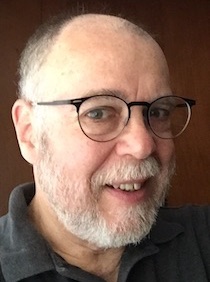Here’s the Phaeacian princess Nausicaa in Odyssey 6 asking her father for the wagon so that she can go down to the river and do the laundry.
Richmond Lattimore:
“Daddy dear, will you not have them harness me the“Daddy dear” doesn’t ring true to me, and it’s not because I’m judging by 21st-century standards. The words don’t ring true to me as mid-20th-century American English. “[W]ill you not have them” seems unnecessarily cumbersome; “harness me the wagon” simply awkward.
wagon,
the high one with the good wheels”
Robert Fagles:
“Daddy dear,Yikes! “Daddy dear” all over again. The ellipsis is Fagles’, not mine. In his translations of Homer and Aeschylus (and perhaps elsewhere too) his speakers tend to . . . zone out, for no apparent . . . reason. For me, the cumulative effect is tedious. And would anyone really interrupt such a simple request by adding the words “I wonder”? Why would Nausicaa wonder whether her father would act? Fagles’ attempts to suggest natural speech here seem stilted. Still, this translation is less cumbersome than Lattimore’s.
I wonder, won’t you have them harness a wagon for
me,
the tall one with the good smooth wheels? . . . “
Stanley Lombardo:
“Daddy, would you please hitch up a wagon for me—Now I really hear the voice of a daughter. As a teenaged princess, Nausicaa doesn’t need to wonder whether her father will do what she asks. As the father of a daughter myself, it occurs to me to ask: Is Nausicaa making a request, or is she simply telling her father what she expects him to do? Hmm.
A high one that rolls well”
“[H]itch up” is a nice American touch.
Robert Fitzgerald:
“My dear Papà, could you not send the mule cartFitzgerald’s version of these lines is my favorite among the four. “My dear Papà” seems just right for a princess addressing her father. Such easy elegance! What a wonderful way to bring the charmed, magical world of the Phaeacians into our language. Fitzgerald is departing from the sense of the Greek with pretty, but pretty wheels do seem right in the Phaeacian world of aesthetic pleasures.
around for me—the gig with pretty wheels?”



comments: 0
Post a Comment